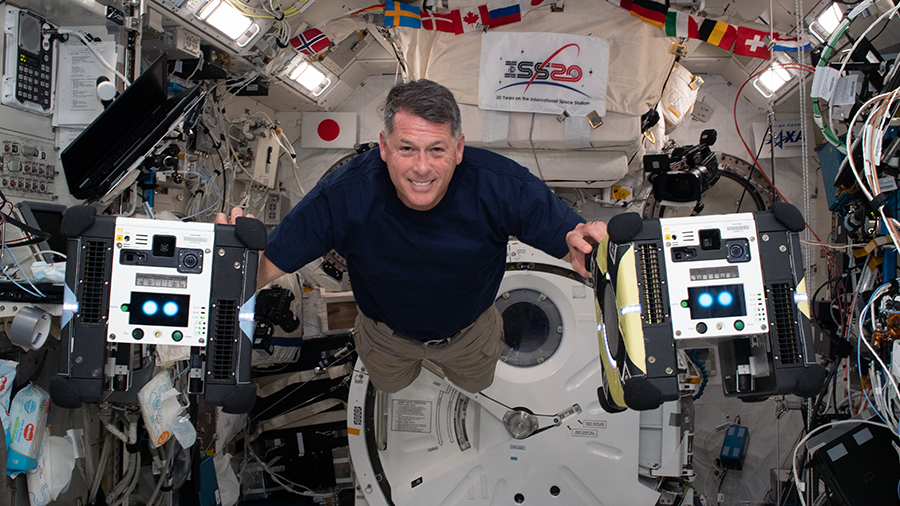Astronauts Study how Space Affects Immune System, Exercise

Human Research and space physics topped the science schedule aboard the International Space Station today. The seven-member Expedition 65 crew also spent Thursday servicing a variety of life support gear.
The new Celestial Immunity study underway aboard the orbiting lab this week is looking at how the human immune system is affected by long-term weightlessness. NASA Flight Engineer Mark Vande Hei started the day readying blood cell samples for the human research experiment inside the Life Science Glovebox (LSG). In the afternoon, NASA Flight Engineer Megan McArthur thawed the samples, placed them in a centrifuge, and inoculated them inside the LSG located in the Kibo laboratory module.
Commander Akihiko Hoshide joined Flight Engineer Thomas Pesquet for a long-running space workout study today. The duo took turns attaching sensors to themselves then pedaling on an exercise cycle. The exercise study measures an astronaut’s aerobic capacity and the effort required to perform strenuous activities such as spacewalks.
A space physics experiment is looking at the production of semiconductor crystals aboard the orbiting lab. Flight Engineers Shane Kimbrough of NASA and Oleg Novitskiy of Roscosmos swapped hardware for the study taking place inside the Microgravity Science Glovebox. Results may improve the quality of semiconductors to benefit industries on Earth.
Maintenance is key to ensuring life support systems and science hardware stay in tip-top shape on the station. The crew is constantly monitoring and servicing lab hardware with support from mission controllers on the ground.
Cosmonaut Pyotr Dubrov worked throughout Thursday checking out fans and navigation hardware in the station’s Russian segment. Vande Hei, McArthur, and Pesquet partnered together and replaced components in the U.S. segment’s oxygen generation system throughout the day.
from Space Station https://ift.tt/3tjt7ju
Comments
Post a Comment